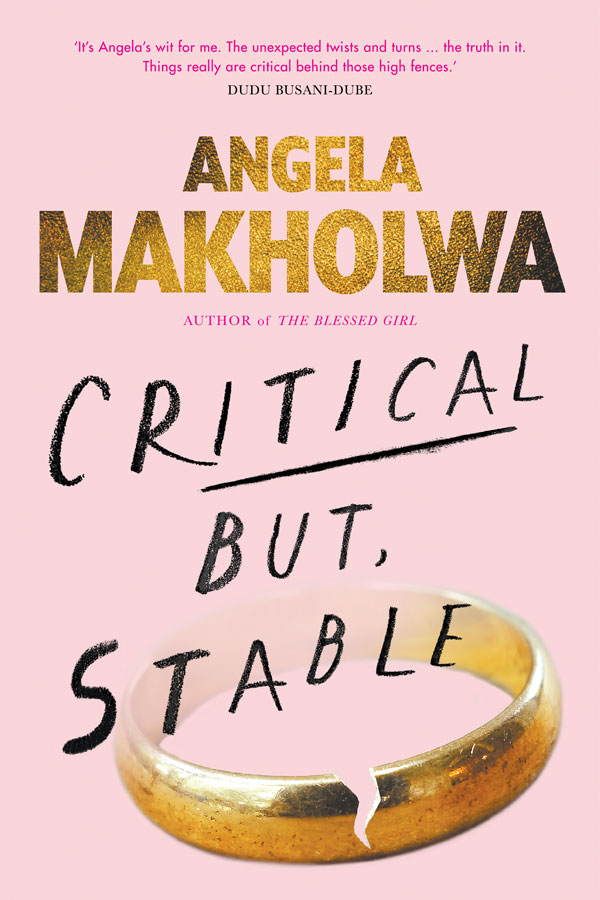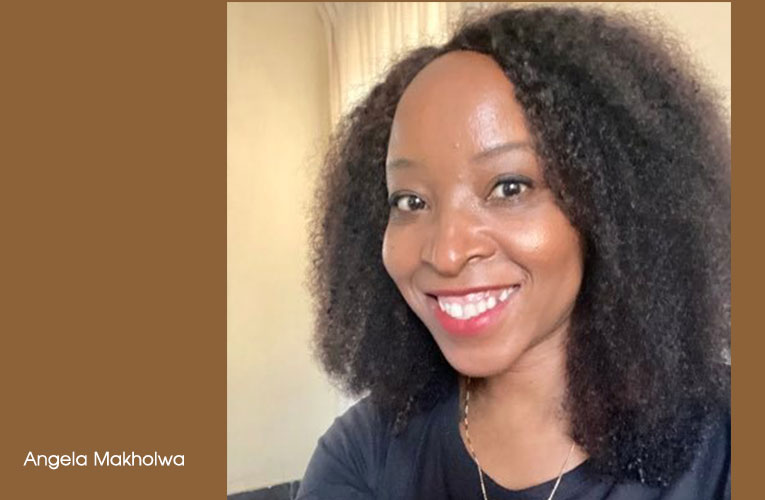Critical But, Stable: Novelist Angela Makholwa delves into the lives of the wealthy in the suburbs
Makholwa has the rare ability to move easily and seamlessly between crime fiction and other genres
By Edward Tsumele
She has clearly distinguished herself from her generation of writers who have since emerged in South Africa after democracy dawned in 1994, to carve out for herself a niche in crome fiction as well as looking at current contemporary issues confronting an urban black population in a free country. She and this new generation of writers in post apartheid South Africa, have developed and consolidated a literary voice that is not only hard to ignore, but loud enough to disrupt the norm in local literature.
I am talking about novelist Angela Makholwa. Not only does this novelist move easily and seamlessly between writing intelligently and with an authentic voice, between the crime fiction genre and on contemporary issues of culture, lifestyle and greed, but she does so with a voice that many of her readers connect with, and a tone that is not only familiar in contemporary South Africa, but with such clarity to an extent that her characters that she creates in her novels tend to ring a bell with many people living in contemporary South, especially among the black urbanites

Whether it is a crime novel or a novel that explores a dominant lifestyle in South Africa, it is easy to see your neighbour in them. It is precisely for these reasons that Makholwa’s novels have become popular literature in contemporary South Africa, as they address issues that are contemporary in a manner and fashion that resonate with her readers.
No pretence of literary depth and sophistication, but straight forward language that many of her readers in townships, squatter camps or those living in gated wealthy communities in Sandton, can connect with. The sophistication in her novels however is in how she develops her characters from lifeless ideas to people who breathe and do the sort of things many South Africans get to witness on a daily basis. It takes an observant and humble writer to study and understand such human insights and weave them neatly into her fictional characters.
For example, her much critically acclaimed novel, The Blessed Girl, deals with a very well known phenomenon, which at the beginning of time, was talked about in hushed voices, but has since become so common that society seems to have begrudgingly accepted it as part of our everyday reality.
This is the issue of young and often pretty women, mainly from disadvantaged , not exclusively, but mainly black families, dating older, always wealthy men for financial gain and for comfort in life. Today the term slay queen is as common as a tax driven by a rude driver on our roads.
The Blessed Girl, by the way does not pass moral judgment on the actions of the beautiful, ambitious and street-smart Bontle Tau, a young lady who is accustomed to finer things in life and who goes as far as using her looks to lure wealthy men in order to maintain her luxurious lifestyle.
The novel though is however thought provoking, to make a reader stop and think hard about what drives such young slay queens to do the kind of things they do in order to maintain a certain lifestyle. But what it also does is to make one think equally hard about the behaviour of such men, and again not exclusively black, but mainly black, of either politics types or BEE types, to leave their matrimonial bed from time to time, for such young pretty things, risking damaging their reputations, and sometimes marriages, to spend quality time, with young ladies they often do not love enough to want to get married to , when things go wrong.
By the way, they often do go wrong, and one need not read more than the local tabloid press to understand that. In the case of Makholwa’s novels, especially such as The Blessed Girl, it is this ability to stay away from passing moral judgment that perhaps attract her readers, especially female readers, I suspect, to embrace her idea of local contemporary fiction. She leaves the issue of moral judgment to her readers to make up their own judgment call. Clever novelist this Makholwa.
The other books that Makholwa penned and were also critically acclaimed include Red Ink , The 30th Candle, and Black Widow Society.
Now Makholwa’s fans will be pleased to know that yet another novel dealing with the lives of the wealthy is about to be unleashed onto the local contemporary literature space.
“Pan Macmillan is proud to announce that the much anticipated new novel from Angela Makholwa, Critical But, Stable, will be releasing in November. No one ever tells you the cost of a perfect life …
The Msibis, the Manamelas and the Jiyas are high-flying married couples who belong to the Khula Society, a social club with investment and glitzy benefits. The wives are smart, successful in their chosen careers and they lead lifestyles to match – jostling for pole position in the ‘Keeping up with the Khumalos’ stakes.
The husbands have had their successes and failures, sometimes keeping dubious company and getting to the top of their fields by whatever means necessary. Beneath the veneer of marital bliss, however, lie many secrets. What will happen to their relationships when a devastating event affects all their lives? ,” the marketing material I received in my inbox from her publisher, promoting this new release from Makholwa reads.
The publisher has gone all out promoting this book to the extent that there is even a trailer about the book. Please check out the trailer here…










